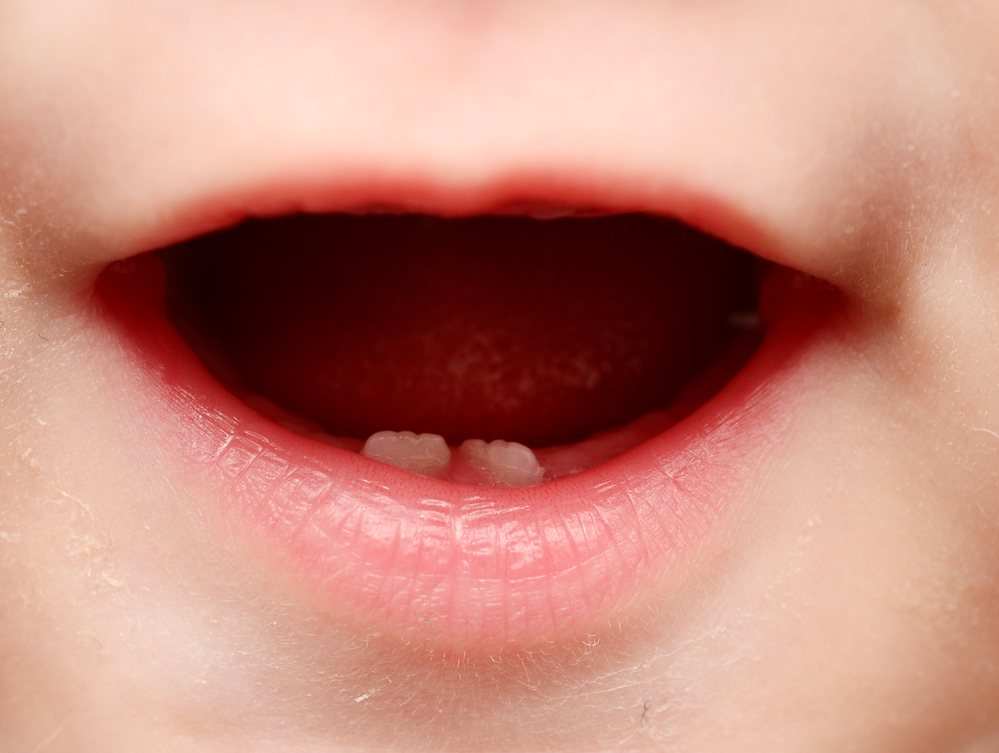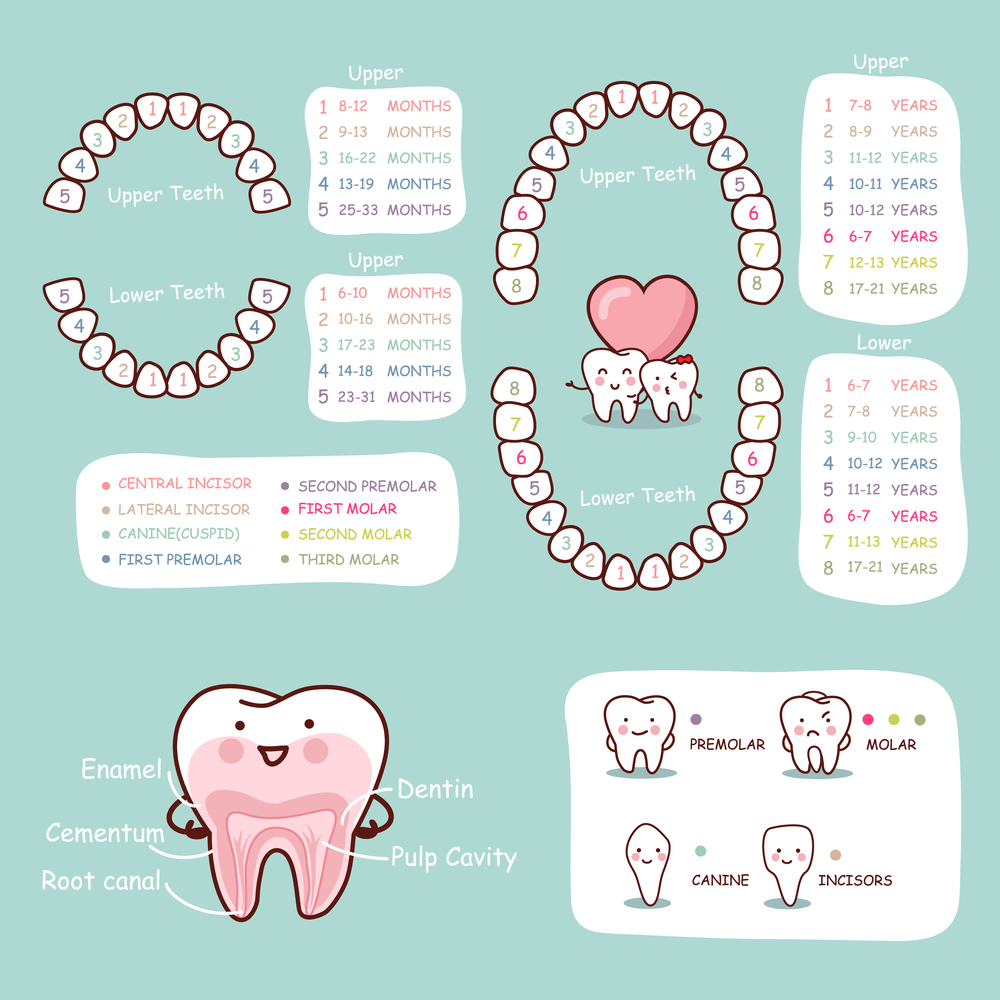
Why Fix Baby Teeth?
It’s a situation we see nearly every day. A young child comes in for a check-up and multiple teeth have decay. Together with the parent, we make a plan to address the dental disease and get the teeth fixed up. As the parent goes home, they are bombarded with questions from their spouse, their neighbors, or their friends: “Why are you fixing baby teeth? Aren’t they all going to fall out? None of these teeth hurt, right? What are you doing?!”
These questions are very common and understandable. By the end of this newsletter, you will be armed with the correct information to not feel crazy for taking care of your kiddo’s teeth! Baby teeth are fixed for multiple reasons: to prevent pain, for growth and development of both baby and permanent teeth and to keep young smiles healthy and happy.
When Do Baby Teeth Start To Erupt?
Baby teeth first erupt into the mouth typically around age 6 months, while the last baby tooth erupts around age 2.5-3 years. Around age 6, a child will lose their first tooth, but they won’t lose their last baby molar until age 12! This is one of the major reasons why baby teeth need to be addressed when they are decayed.
So why don’t we just remove any and every baby tooth that has a cavity? That would indeed be a simple solution, but it would also cause many problems. Teeth like to have other teeth next to them and above/below them. If they don’t, baby teeth shift and move rapidly. This shifting will cause a spacing/orthodontic problem, and when the permanent tooth is ready to erupt into the mouth and replace the baby tooth, there will be insufficient space. Hello braces! Baby teeth are important because they act as placeholders for permanent teeth.

What Are Baby Teeth? Why Aren’t They Permanent?
Baby teeth are not just smaller versions of adult teeth. The enamel on baby teeth is weaker than adult teeth, which causes cavities to grow at a much faster rate. Dental decay is a destructive process and oftentimes the best way to stop the process is to get rid of the decay with a filling, a crown, or a tooth extraction. Sometimes small cavities can be healed with a change in diet, oral hygiene, lowering the bacterial level in the mouth, and ensuring adequate salivary flow with sugarless gum or dental mints. But when the cavity becomes larger, the only way to truly fix the problem is to fix the tooth.
Treating Cavities in Baby Teeth
Cavities don’t always have symptoms or pain, so regular checkups at the pediatric dental office is important. If a cavity is left untreated it can become abscessed. This abscess can cause pain and discomfort for your child and can lead to swelling and infection. Untreated infections can damage the developing tooth beneath, so timely treatment is important.
Many adults still have a fear of seeing the dentist, often caused by a negative experience they had when they were children. This can lead to a lifelong aversion of the dentist and necessary dental treatment. As pediatric dentists we believe that keeping teeth healthy and providing a positive dental experience are equally important. We do everything we can to take the fear out of going to the dentist and even try to make it fun!
Baby teeth serve many functional purposes for your child’s oral health. Making sure those baby teeth stay healthy and treated when necessary is your best bet for setting your child up for a lifetime of success at the dentist. Contact Mountain View Pediatric Dentistry to schedule a cleaning and examination for your child today, Pleasant View Office, 801-737-5437, Farmington Office, 801-447-5437!

